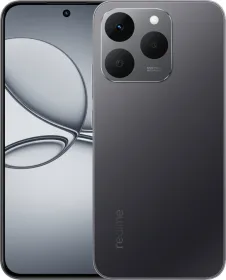The “Awe Dropping” iPhone 17 launch event unveiled what’s possibly the most value-for-money baseline iPhone, along with the ambitious iPhone Air, and the two refined and improved iPhone 17 Pro models with the A19 Pro (3nm) chip that offers unbeatable performance. We also witnessed the launch of the new AirPods Pro 3, Apple Watch Series 11, Watch Ultra 3, and the Watch SE 3. But what about Apple Intelligence?
Why didn’t Apple talk about AI, or, as the company likes to call it, Apple Intelligence, at one of its biggest launch events of the year? It’s not like the CEO Tim Cook didn’t mention the buzzword even once. He did, but in a supporting role to the iPhone 17’s hardware enhancements. Even the AI tools that were talked about, including Visual Intelligence and Live Translation, were not given as much importance. So, what’s going on?
Also Read: Apple Adds DC Dimming Option in iPhone 17 Series
iPhone 16’s Launch Event Focused Heavily on Apple Intelligence


During the “Glowtime” iPhone 16 launch event, which took place in September 2024, Apple focused more on the Apple Intelligence features that weren’t yet available on the iPhones at the time of the launch. The first set of AI-based features arrived in late October 2025 with iOS 18.1. These included the Writing Tools, Smart Replies in Messages, Notification Summaries, and a Cleanup feature for the Photos app.
Then, in December 2025, Apple released the iOS 18.2 update, which included a few additional AI-based features, including Visual Intelligence, Image Playground, and ChatGPT integration for Siri. You see? The company adopted a phased approach for rolling out its AI-based features, which disappointed the early adopters.
Also Read: The iPhone 17 Pro’s 4X Telephoto Camera: Upgrade or Downgrade?
The Delayed Promise of Apple Intelligence

This also led to a false advertising lawsuit against the company, wherein the National Advertising Division (NAD) of the United States later directed Apple to remove the “built for Apple Intelligence” phrase from the iPhone 16’s landing page. While Apple dodged that bullet by including additional features in subsequent updates and complying with the directives, the most anticipated Siri update is still not here.
Most Apple Intelligence features, such as Writing Tools, Smart Replies, and Image Playground, are nice to have, but they don’t offer anything new or unique. In other words, they aren’t as industry-leading as some of Apple’s other innovations have been in the past, such as the edge-to-edge screen introduced with the iPhone X, the Dynamic Island that Android manufacturers instantly copied, and even the Control Center.
According to recent reports, the updated Siri is being delayed due to Apple’s concerns about users’ privacy and the handling of sensitive data. The company has mentioned, on several occasions, how the technology behind the tool is too powerful, and it wants to be absolutely sure before rolling it out to the general masses. As a result, the updated Siri will now arrive in early 2026 (per the latest reports).
Also Read: iPhone 17 Pro Max Price in India vs. Abroad: The Ultimate 2025 Savings Guide
Rivals Are Surging Ahead, Apple Is Playing Catch-Up

Apple’s closest competitor, Samsung, has already replaced Google Assistant with its own Gemini AI voice assistant on its flagship and mid-range smartphones, allowing users to receive context-aware answers from the assistant and perform cross-app functions. For instance, I can ask the Galaxy S25 to find the top-rated restaurants near my house and make a list of them on the Notes app.
Even the latest Live Translation feature that helps users communicate in different languages (in real-time) using the AirPods Pro 3 and the iPhone has been around on Samsung earbuds for quite some time. It appears that the company is still playing catch-up in the field of AI, which is why we didn’t hear much about it at the “Awe Dropping” iPhone 17 launch event.
Apple Seems To Have Shifted Its Focus To Hardware

At the iPhone 17 launch event, Apple unveiled some of its most advanced iPhone hardware to date, including the A19 and A19 Pro chipsets, the new aluminum unibody design for the iPhone 17 Pro models, improved cameras across the lineup (including the Center Stage front camera), and the most value-for-money baseline iPhone we’ve seen in years, the iPhone 17. The company also announced two new networking chips: N1 and C1X.
Not mentioning AI and focusing on the hardware announcements could have been a conscious decision, as it delivers tangible, immediate improvements that stakeholders, critics, and consumers can trust and base their investment or purchase decisions on. Despite this, the Apple stock price fell 3.2% on September 9, 2025, a testament to the fact that even a company like Apple can struggle if it does not make enough advancements in AI.
Also Read: Apple’s iPhone 17 Just Got Smarter Selfies: Meet the Center Stage Camera That Follows You
For now, Apple appears to be working on a formula for selling refined hardware today and integrating AI later. While this could surely buy Apple some time, it will have to buckle up fast, fulfilling its initial promises and working on what’s next in Apple Intelligence for the advanced, cutting-edge iPhones it sells.
You can follow Smartprix on Twitter, Facebook, Instagram, and Google News. Visit smartprix.com for the latest tech and auto news, reviews, and guides.

































